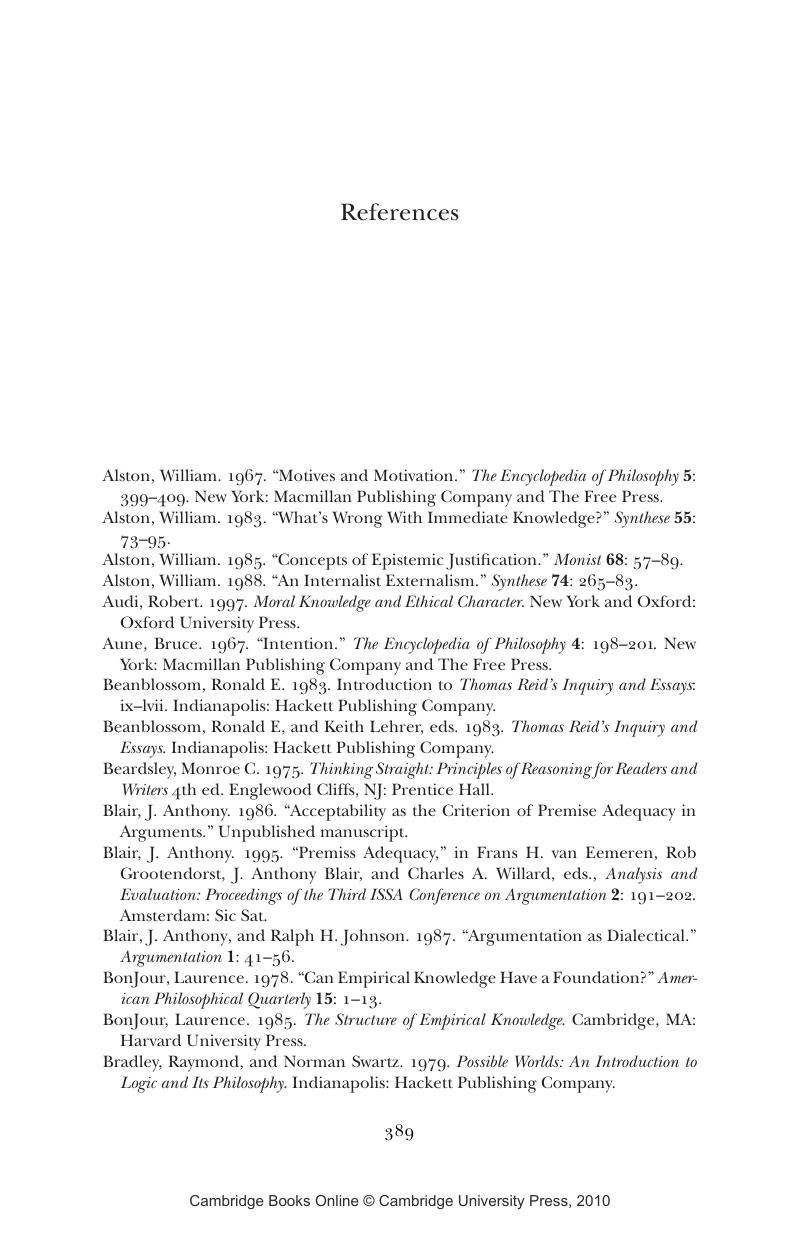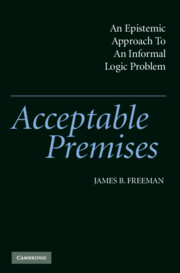References
Published online by Cambridge University Press: 02 December 2009
Summary

- Type
- Chapter
- Information
- Acceptable PremisesAn Epistemic Approach to an Informal Logic Problem, pp. 389 - 394Publisher: Cambridge University PressPrint publication year: 2004



